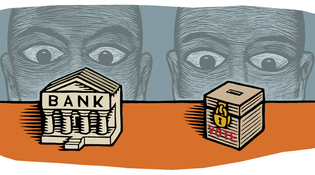 loading
loading
FindingsDouble-teaming the election cheats Gregory NemecView full image
International election monitoring is touted for its ability to deter corrupt governments from rigging results. But a Yale political science professor suggests that sometimes, monitors aren't enough. "Some governments will always try to get around the intention of international efforts," says Susan Hyde. In a new study, she and a coauthor have found that governments often turn to manipulating the economy. Election fraud is usually the first choice of a would-be president-for-life. But politicians may try to buy popularity instead, by slashing taxes and spending lavishly before an election—offering free public transportation to the elderly, say. Free spending is a less certain means of retaining power, but it has the advantage of being legal. Enter the International Monetary Fund. If countries owe money to the global bank, Hyde writes, the IMF can pressure them to tamp down pre-election handouts. IMF reports are read around the world, and other creditors tend to spurn nations that defy their loan agreements. Hyde examined the government balance (a measure of fiscal health) of 94 countries during their election seasons. She found that IMF oversight made a difference: those with IMF loans showed an average drop of 0.4 percent, but those without showed a drop twice as large. The Hungarian elections of 1994 and 2002 featured both types of oversight. There was little outright fraud. In 1994, a new IMF agreement required an austere budget; the incumbent government complied and was voted out. In the run-up to the 2002 election, the government defied the bank and doubled the deficit. But it faced withering criticism from the IMF—and lost power anyway. Some elections, Hyde notes, go the other way. In 1996, the Zambian government scrupulously followed its IMF agreement, but defied international monitors by engaging in "direct election fraud." In politics, as in life, sometimes money is all that matters.
The comment period has expired.
|
|